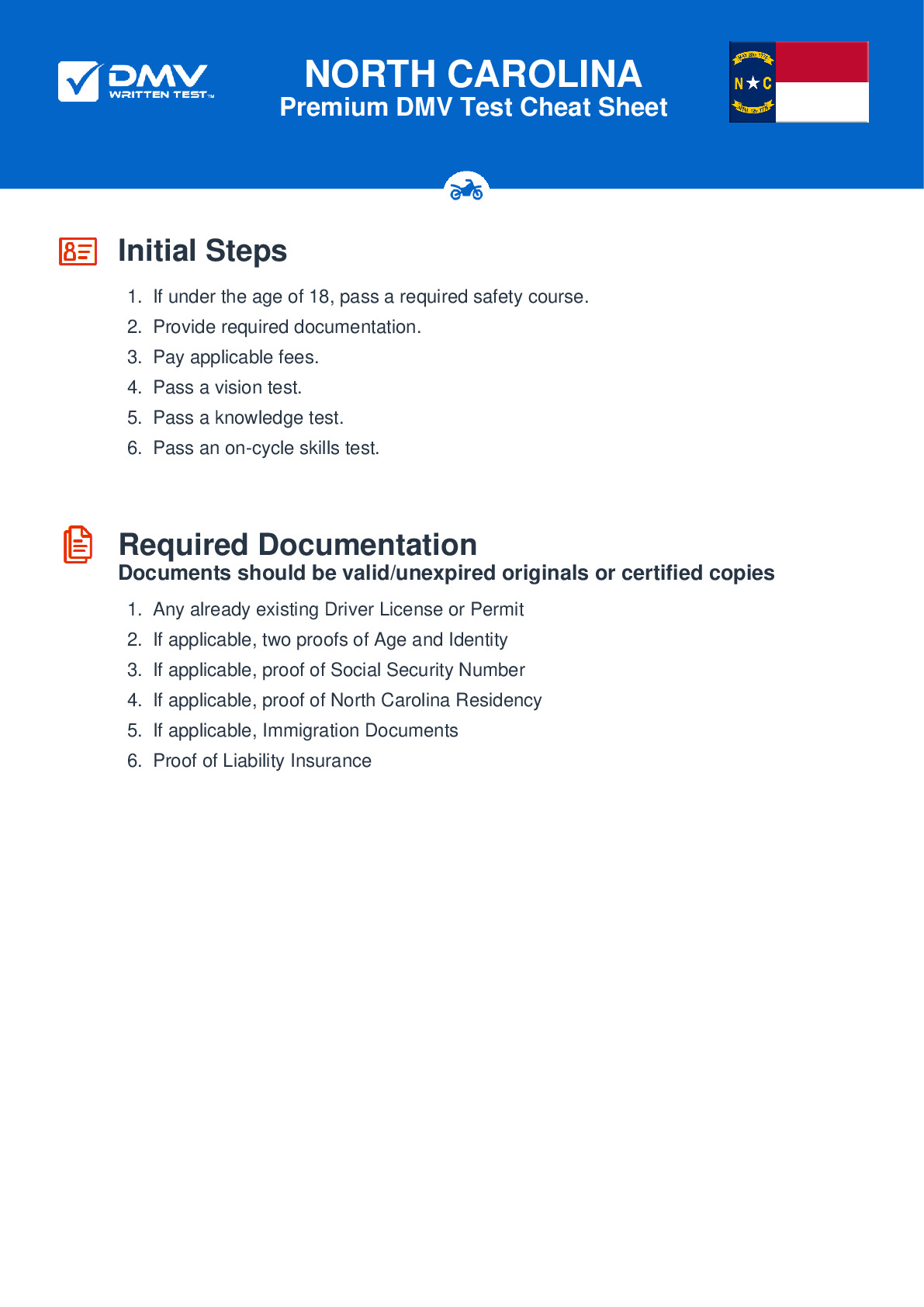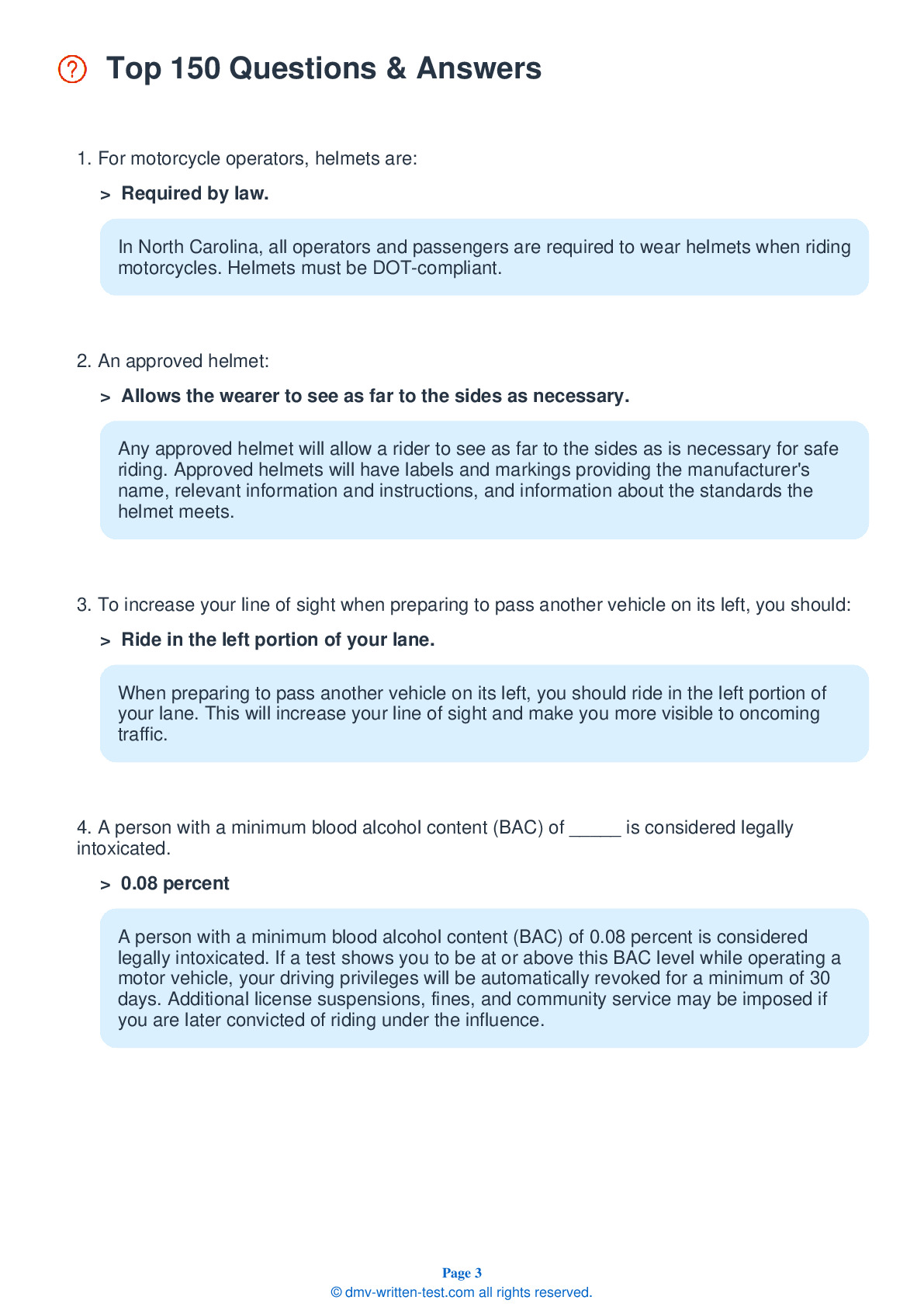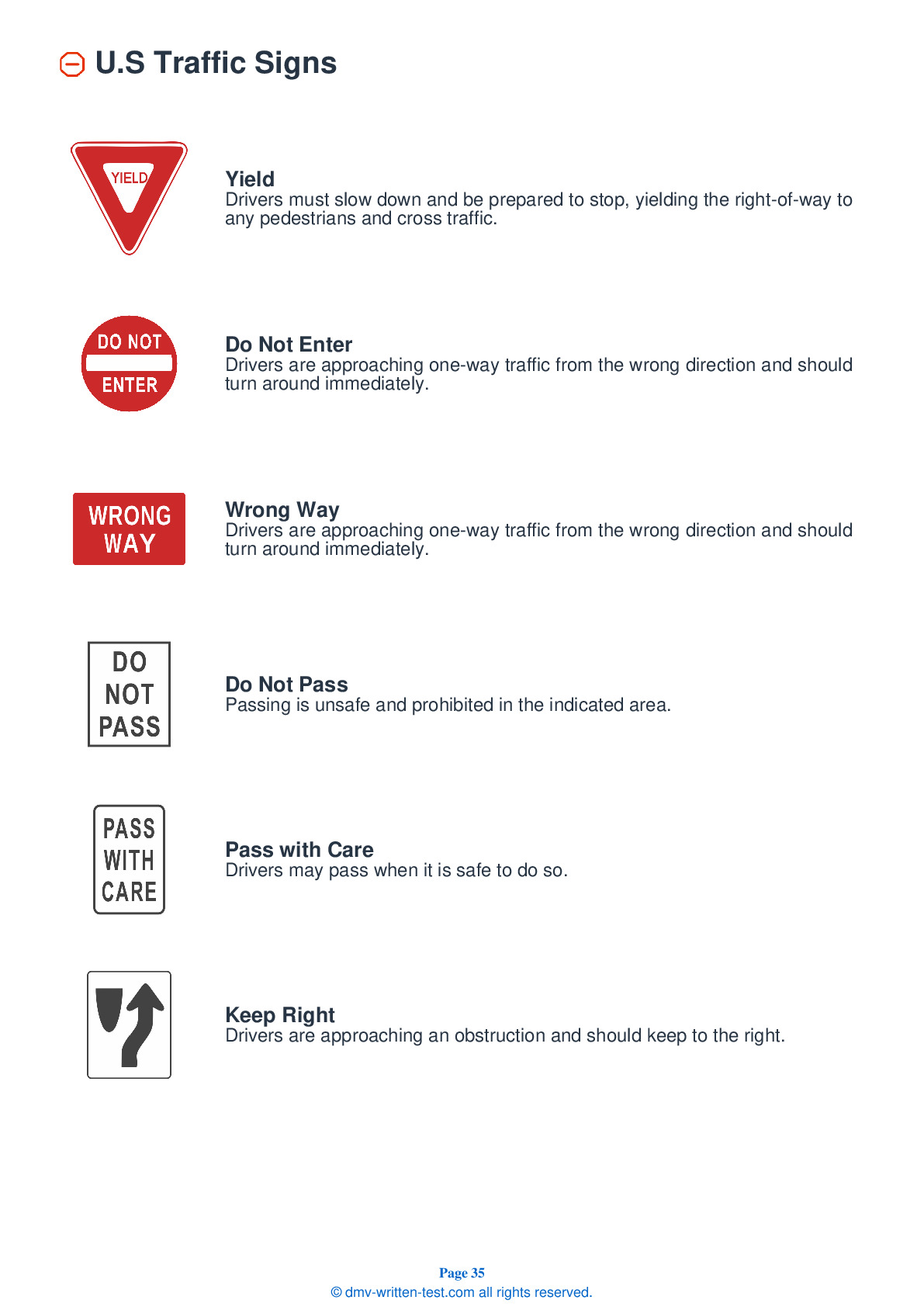2026 North Carolina Motorcycle Permit Test 4
The following questions are from real DMV written motorcycle permit tests. These are some of the actual permit questions you will face in North Carolina when getting your motorcycle learners permit. Each motorcycle theory practice test question has three answer choices. Select one answer for each question and select "grade this section." You can find this button at the bottom of the drivers license quiz. For a complete list of questions and answers for North Carolina please visit https://cheat-sheets.dmv-written-test.com/en/north-carolina/motorcycle.
Number of Tests
Number of Question
Passing Score
1. For the best protection, riding gloves should be made of:
Explanation
Gloves should be made of leather or another durable material to provide proper protection for the wearer.
2. For motorcycle operators, helmets are:
Explanation
In North Carolina, all operators and passengers are required to wear helmets when riding motorcycles. Helmets must be DOT-compliant.
3. The best lane position is:
Explanation
A properly chosen lane position should provide a number of benefits, including an increased ability to see others and to be seen. It should help you avoid wind blasts, other drivers' blind spots, and surface hazards. Your lane position should discourage other drivers from trying to share your lane and provide you with an escape route, should a hazard arise. Choose a lane position that maximizes your space cushion.
4. When checking tire pressure:
Explanation
You should use a tire gauge to check the tire pressure before every ride. An under-inflated tire may still look okay, so a visual check is not enough.
5. When riding with a passenger, you should:
Explanation




